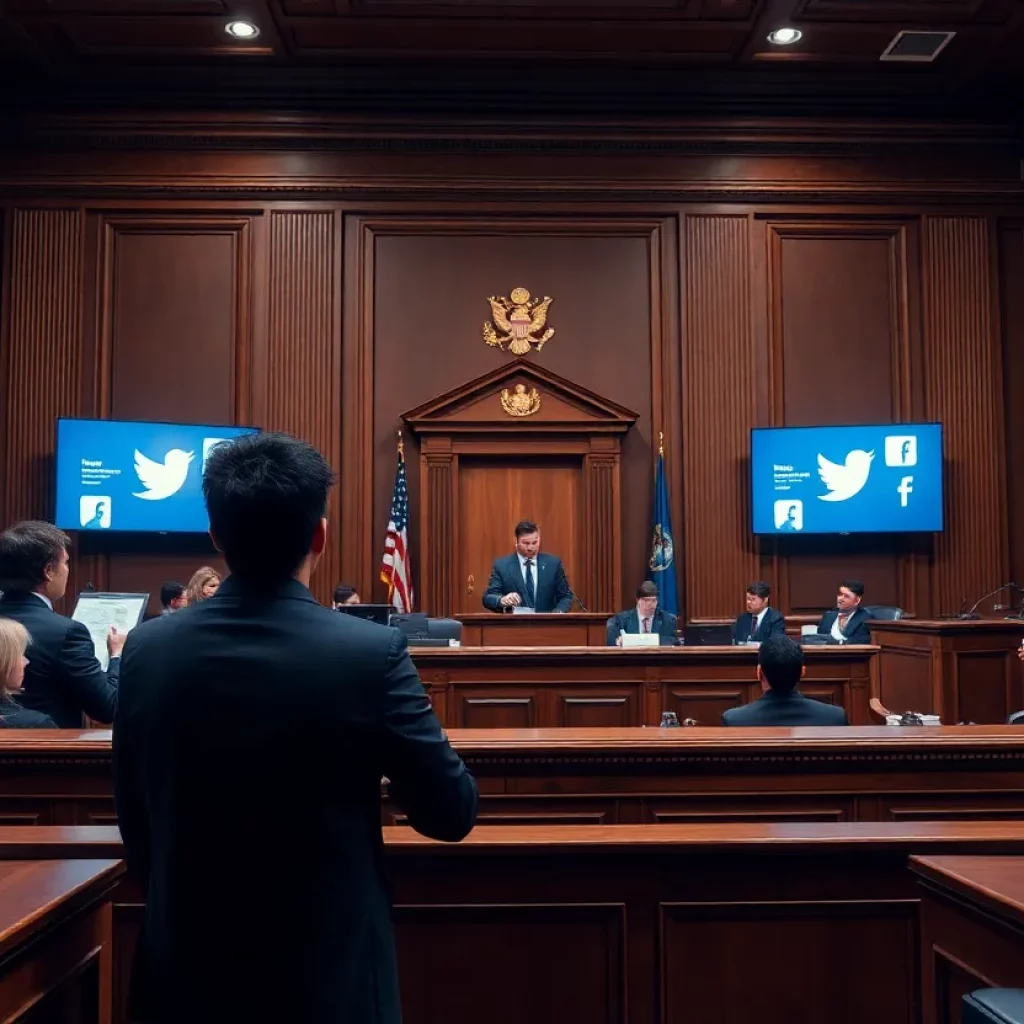News Summary
Alabama Attorney General Steve Marshall has initiated a lawsuit against TikTok and its parent company ByteDance, claiming that the app harms the mental health of young users. The legal action targets deceptive claims about youth safety and highlights concerns over TikTok’s addictive design and ineffective safety features. Allegations include exposure to harmful content and potential espionage, addressing significant issues related to child safety and digital security. Marshall seeks justice and accountability under the state’s Deceptive Trade Practices Act.
Alabama Attorney General Takes Bold Action Against TikTok
In a groundbreaking move, Alabama Attorney General Steve Marshall has filed a lawsuit against social media giant TikTok and its parent company, ByteDance, alleging that the platform harms the mental health of the state’s youth. The lawsuit, lodged in the Montgomery County Circuit Court, aims to confront what Marshall describes as “deceptive claims about youth safety” perpetuated by the app.
Focus on Youth Safety Concerns
This legal action underscores the alarming issues concerning the mental well-being of Alabama’s young users. Marshall has asserted that TikTok actively exploits children, contributing to a disturbing mental health crisis within the state’s youth population. According to the lawsuit, TikTok is built on an addictive design that prioritizes corporate profits at the expense of the mental health of its users.
TikTok’s Ineffective Safety Features
Marshall has critiqued TikTok for its safety features, branding them as minimal and ineffectual—a mere marketing façade aimed at deflecting attention from the app’s detrimental effects on minors. Key elements of the lawsuit detail how TikTok’s algorithm perpetuates a cycle of endless scrolling, exposing young users to a slew of harmful content.
Harmful Content on the Platform
The types of content cited in the lawsuit paint a troubling picture: TikTok is allegedly a platform rife with materials that endorse depression, eating disorders, self-harm, and drug use. This is compounded by the presence of dangerous viral challenges that can have deadly consequences. Marshall notes that over one-third of TikTok’s daily users in the United States are aged fourteen years or younger, emphasizing a significant vulnerability within this demographic.
Deliberate Campaign Targeting Youth
The complaint illustrates a systematic effort by TikTok to capture the youth market. The lawsuit accentuates the link between TikTok and its parent company, ByteDance, a Chinese corporation that has faced scrutiny in the past. In 2024, the Department of Justice and Federal Trade Commission accused ByteDance of illicitly gathering personal data, contributing to growing concerns over privacy and digital security.
Allegations of Espionage Against Americans
Marshall has also leveled serious allegations at ByteDance, suggesting the company is engaged in “espionage” by collecting extensive amounts of data on American users. This adds another layer of complexity to the lawsuit, as it intertwines issues of national security with children’s safety online.
Seeking Justice and Accountability
The lawsuit requests civil penalties under Alabama’s Deceptive Trade Practices Act, along with compensatory and punitive damages. Moreover, Marshall is advocating for injunctive relief to halt TikTok’s misleading practices regarding the safety of its younger users, putting forth a strong case to protect Alabama families from what he perceives as corporate negligence.
TikTok Responds
In response to the lawsuit, a TikTok spokesperson has asserted that the claims against them are based on misinformation, arguing that they have initiated several industry-leading safety measures to ensure the well-being of their users. These include strict safety settings, screen time limits, and Family Pairing tools, which allow for parental supervision.
Conclusion: A Call for Change
This lawsuit is poised to become a pivotal chapter in the ongoing narrative surrounding social media’s impact on youth. By addressing the pressing concerns of families in Alabama, this legal action aims to ensure that platforms like TikTok are held accountable for their impact on society’s most vulnerable users. As digital landscapes continue to evolve, the need for stronger regulations and protections becomes increasingly apparent.
Deeper Dive: News & Info About This Topic
HERE Resources
Lawyers Embrace Innovation with Supio’s Advanced Platform
Tate Brothers Face Legal Challenges in Florida
Legal Drama Unfolds for Lawyer Cierra Norris After Contempt Ruling
Lawyers Navigate Social Media’s Impact in Injury Cases
Rising Trends in Membership Programs Among Lawyers
Charleston’s New Bar Faces Heat Over Controversial Dress Code
Lawyers Navigate New Trademark and Securities Lawsuits
Charleston Residents Brace for TikTok Ban as Supreme Court Weighs in
Additional Resources
Author: STAFF HERE CHARLESTON
The CHARLESTON STAFF WRITER represents the experienced team at HEREcharleston.com, your go-to source for actionable local news and information in Charleston, Charleston County, and beyond. Specializing in "news you can use," we cover essential topics like product reviews for personal and business needs, local business directories, politics, real estate trends, neighborhood insights, and state news affecting the area—with deep expertise drawn from years of dedicated reporting and strong community input, including local press releases and business updates. We deliver top reporting on high-value events such as the Spoleto Festival USA, Charleston Wine + Food Festival, and the MOJA Festival. Our coverage extends to key organizations like the Charleston Metro Chamber of Commerce and the Charleston Museum, plus leading businesses in tourism and maritime industries that power the local economy such as South Carolina Ports Authority and the Charleston Visitor Center. As part of the broader HERE network, including HEREaiken.com, HEREbeaufort.com, HEREchapin.com, HEREcharleston.com, HEREclinton.com, HEREcolumbia.com, HEREgeorgetown.com, HEREgreenwood.com, HEREgreenville.com, HEREhiltonhead.com, HEREirmo.com, HEREmyrtlebeach.com, HEREnewberry.com, HERErockhill.com, HEREspartanburg.com, HEREaustin.com, HEREcollegestation.com, HEREdallas.com, HEREhouston.com, and HEREsanantonio.com, we provide comprehensive, credible insights into South Carolina's dynamic landscape.










